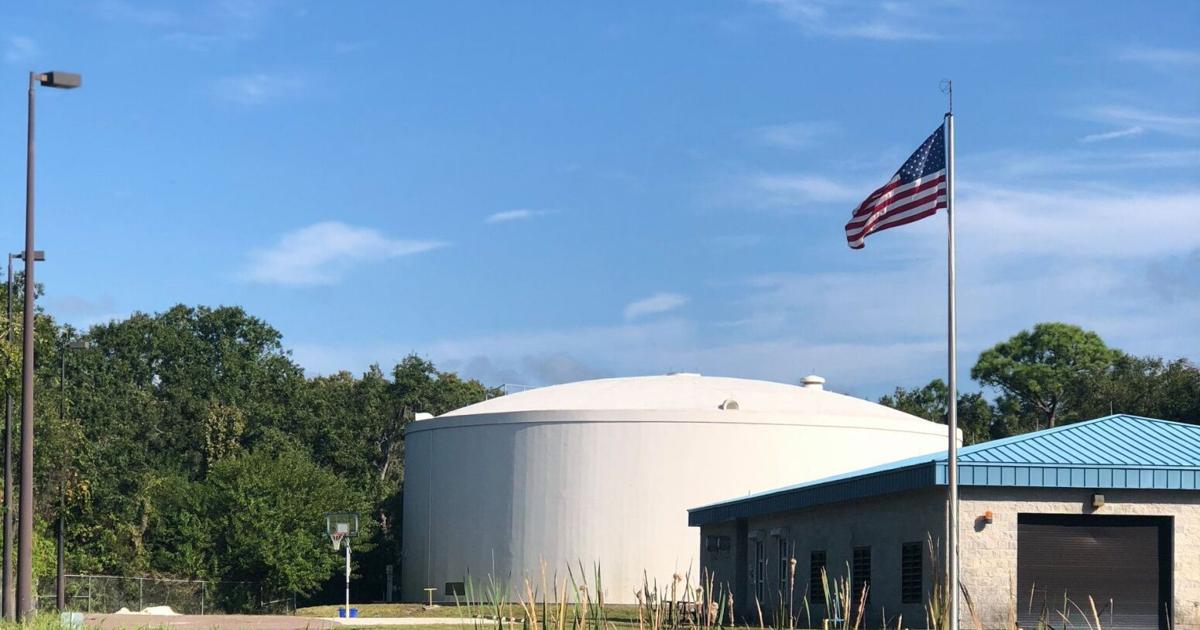The city of Oldsmar is pumping the brakes on a regional wastewater initiative, with the City Council unanimously voting Oct. 7 to decline participation in Pinellas County’s proposed Regional Resource Recovery Facility.
The decision was driven primarily by cost concerns, as initial estimates place the price of joining the project at up to four times what the city currently pays for biosolids disposal.
The vote authorized City Manager Felicia Donnelly to draft a letter to Pinellas County formally rejecting the financial commitment. However, the city has requested the option to pay a future market rate should new regulations demand it.
The proposed facility is designed as a centralized facility intended to help local municipalities meet rising environmental and regulatory challenges. It would process biosolids, the nutrient-rich organic byproduct of treating wastewater, in an advanced manner, potentially creating marketable products like renewable energy, fertilizers, and compost.
Donnelly outlined that the project’s feasibility study began after Pinellas County hired CDM Smith. The primary motivation is compliance with pending regulatory changes and proactive planning for contaminants like PFAS (Per- and Polyfluoroalkyl Substances), which are a group of man-made chemicals that can be found in water and other environmental elements.
Interim Public Works Director Johna Jahn explained that Oldsmar’s Water Reclamation Facility generates approximately 400 dry tons per year and currently produces Class B biosolids, which are compliant and used for land application under an existing contract that runs through 2030.
The threat of future regulation, however, looms large. Jahn addressed the growing national concern over contaminants.
“PFAS is the forever chemical that you’ve been hearing about in the news,” she told the council, noting that the county is attempting to prepare for costly future rules regarding the removal of these substances.
Pinellas County Utilities first reached out in the summer of 2023, requesting Oldsmar’s financial commitment to the design and construction of the RRRF. The city’s director of public works at the time committed technical assistance, but deferred any financial pledges until the costs, the required interlocal agreement, and council approval were secured.
Phase 1 of the study was completed in July 2025, determining the facility’s estimated costs to Oldsmar would be significantly higher than the status quo. Phase 2, which involves developing bid specifications, set an Oct. 10, 2025, deadline for commitments from local municipalities.
The financial data presented by Jahn was the deciding factor for the council. The various scenarios proposed by the county estimate Oldsmar’s annual cost for processing to be between $660,000 to over $1 million. This is compared to the current annual budget proposal for biosolids management, which is significantly lower.
“If you compare those numbers to what we have proposed in our budget this year … the range is 160% up to more than 300% greater than what we’re currently proposing to spend this year,” Jahn stated.
Vice Mayor Steve Graber crystallized the comparison for the public.
“I think that was pretty specific as to we go from $200,000 up to perhaps ($600,000) or maybe north of a million for something that we’re already doing,” he said.
Council member Andrew Knapp also questioned the potential return on investment. “Is there any … as far as renewable energy, fertilizers, is there any discussion with the county returning some of those, you know, renewable energies to local municipalities that participate?” Jahn confirmed that no such term or long-term revenue sharing had been included in the current proposal.
During the discussion, council member Valerie Tatarzewski confirmed that the city is currently compliant with all existing standards. “As of right now, we are following all regulations as far as wastewater treatment. This is in regard to something that is being discussed legislatively with possibility … in the future,” she said.
This point became central to Mayor Katie Gannon’s argument. She highlighted the fact that Oldsmar is one of only a handful of the 24 municipalities in Pinellas County that operates its own wastewater treatment plant, alongside larger jurisdictions like Clearwater and St. Petersburg.
“I would like to think that our contribution to the overall amount of biosolids is a tiny piece of the poo pie compared to what is overall going to be potentially processed by this facility,” Gannon said to laughs.
Gannon expressed confidence that the city’s staff could pivot and change their current processes if and when concrete legislation requires it, concluding that committing to the “exorbitant costs” based on “quite theoretical” future plans was not fiscally responsible for residents.
Following the discussion, a motion was made to authorize City Manager Donnelly to draft a letter declining participation. The motion was unanimously approved.

